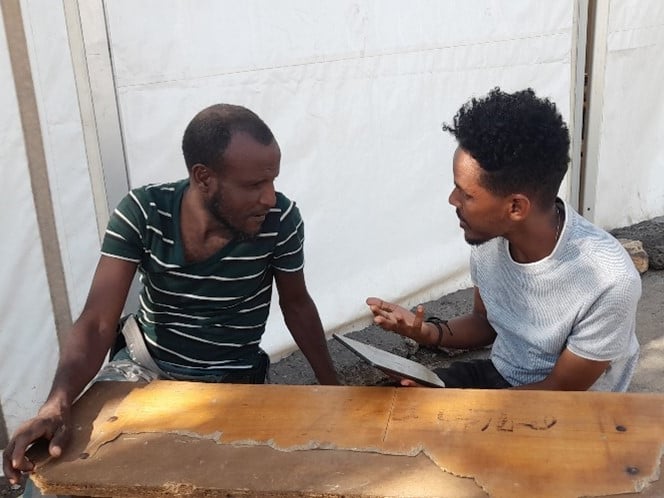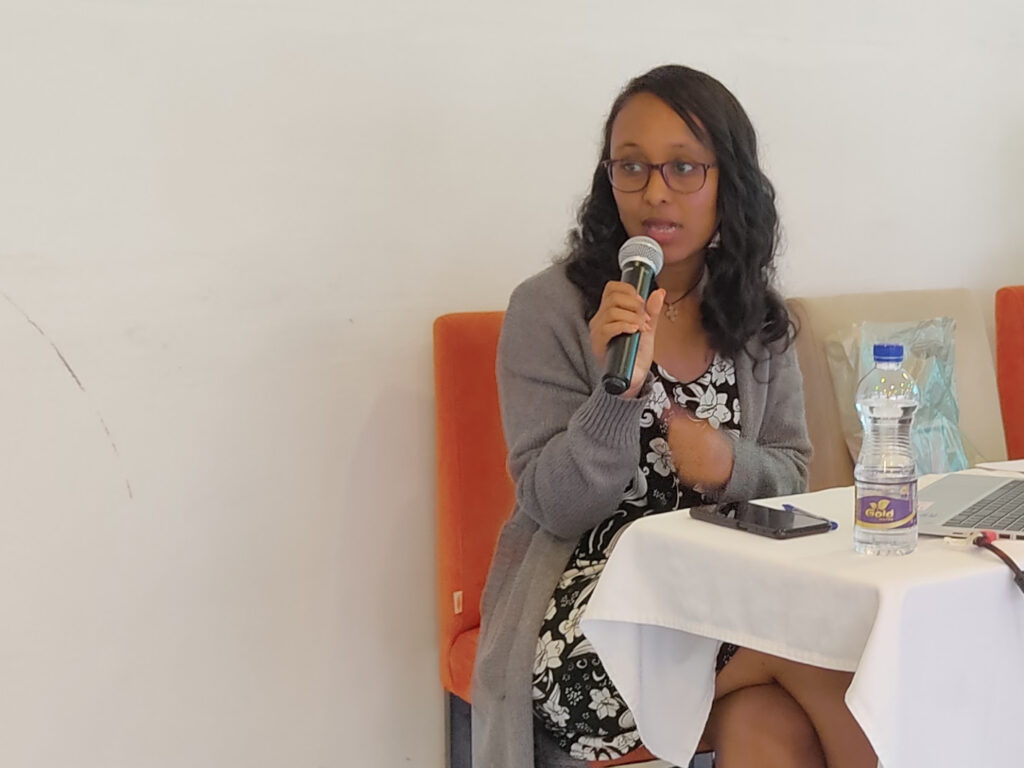Ethiopia is dealing with a multitude of crises. Natural disasters, poverty, climate change and conflicts threaten people’s lives and livelihoods. Organisations must respond quickly to prevent an already challenging situation from escalating. Cordaid’s humanitarian team in Ethiopia has successfully piloted an innovative and life-saving method to speed up cash transfers.

Luya Tsega is a humanitarian programme officer for Cordaid in Ethiopia. During her visits to disaster areas in remote regions, she witnessed how humanitarian needs can change between locations and contexts. With her colleagues and partners, she advocates for cash programmes in emergency relief backed by international donors.
‘Next to food provision and essential services, such as water and hygiene facilities, more and more we also transfer cash directly to people,’ Luya explains. ‘In times of emergency, it reaches the victims of a crisis fast, and they can decide what to buy and when. This is good for the local markets and a more dignified form of support.’
This simple yet revolutionary method of humanitarian assistance has many advantages. But like anything in complex circumstances, it also has its own challenges.
Uncomfortable and Dangerous
Luya: ‘We used to give cash in hand. This is a very fast and direct way of working, but it is sometimes not recommended. Handing out money publicly can be uncomfortable, inconsiderate to people’s feelings of pride and dignity, and even expose them to danger. For example, a woman alone receiving money in a public setting can put her at risk of harassment or robbery.’
‘It is easy to use, reduces the chances of errors and we reach people much faster.’
This is why aid workers prefer digital cash transfers in crisis areas where people still have access to their bank accounts. However, solving one problem sometimes creates another. Banks must comply with international procedures and handle administrative tasks that take a lot of time—too much time for people in urgent need of support.
121 Platform
The 510 data and digital initiative of the Netherlands Red Cross developed a tool that significantly simplifies and speeds up this process. The 121 platform is an app that gives aid workers access to the necessary data to execute a quick transfer.
The platform gives complete control of the process. Before, people’s data had to be sent to the bank first. After a thorough check, a transfer would be made from the aid organisation’s bank account to the end receiver’s account. This standard procedure can take weeks.
Immediate Payment
121 removes the need to communicate with the bank. The aid workers add people’s account details to the platform. The data will be validated in the app, and the payment can be made immediately. Between June and December 2023, Cordaid’s Ethiopian team supported 600 households through this new method.
Luya: ‘It is easy to use, reduces the chances of errors, and we reach people much faster. It lessens the bureaucratic burdens for aid workers. For our organisation, this type of innovation is also good for visibility towards our donors and stakeholders. It shows that we are becoming more efficient.’

After the successful pilot in Ethiopia, any humanitarian partner who wants to implement a cash transfer programme can contact the 510 team and start working with the platform.
Integrate More Banks
But before the app can be used on a large scale, Luya warns, there are still some hurdles to overcome. ‘Right now, there is an integration with only one bank. This is one of the largest banks in the country, but many people still might not prefer to use this bank and may not have an account there. We need to integrate more banks for the platform to work in all situations and to meet the interests of the people affected, in compliance with the Core Humanitarian Standard.’
‘In general, it works great,’ Luya concludes. ‘But there’s also room for improvement. The dashboard will need more features, and the reporting can be done more accurately. The developers will update the platform regularly; I don’t see any major problems. Mostly opportunities. We are very happy with this innovation.’